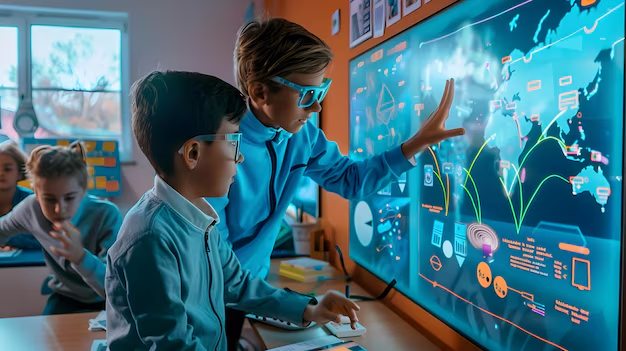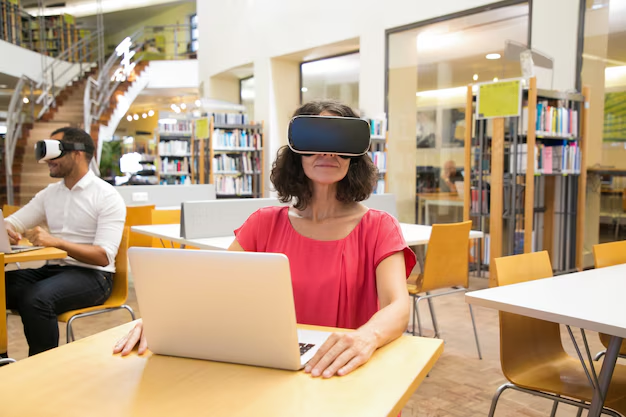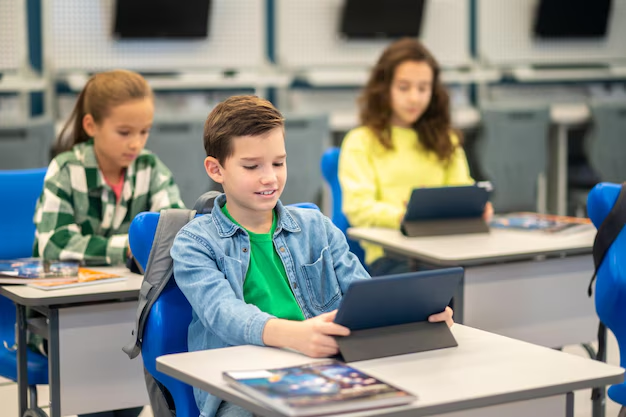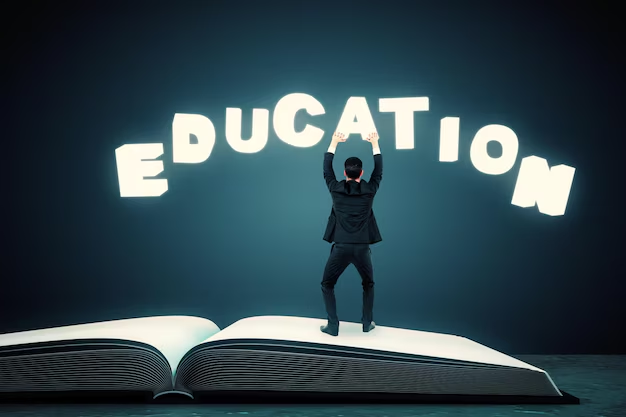Introduction: The future of learning is rapidly evolving as we enter a new era of technological advancements, global challenges, and educational reforms. With the next generation of students poised to face an increasingly complex world, it is essential to revolutionize education to meet their needs and prepare them for future success. This article explores how education is being transformed, the role of technology in shaping the learning experience, and the key trends driving the future of education.
The Role of Technology in Revolutionizing Education:
- EdTech Innovation: The rise of educational technology (EdTech) has revolutionized the learning experience. Digital platforms, interactive tools, and online learning resources are making education more accessible, personalized, and flexible than ever before. Virtual classrooms, e-learning modules, and AI-powered tutoring systems enable students to learn at their own pace, with tailored content to suit their individual needs.
- The Power of Artificial Intelligence: Artificial intelligence (AI) is playing a major role in transforming how education is delivered. AI-driven systems can assess students’ learning styles, track progress, and recommend personalized learning paths. These advancements not only enhance the effectiveness of learning but also provide real-time feedback, enabling students to take ownership of their educational journey.
- Virtual Reality and Augmented Reality in Education: Virtual reality (VR) and augmented reality (AR) are becoming integral parts of education, offering immersive learning experiences. These technologies allow students to explore complex subjects, such as science, history, and geography, in an engaging and interactive way. VR and AR bring concepts to life and provide hands-on experience that traditional classrooms simply cannot offer.
Personalized and Flexible Learning for Every Student:

- Self-Paced Learning: In the future, learning will no longer be one-size-fits-all. Self-paced learning is revolutionizing how students engage with educational content. Online platforms and digital tools provide students with the flexibility to learn at their own speed, making education more accessible to diverse learning styles. This personalization helps improve understanding and retention, as students can revisit content as needed.
- Competency-Based Education: Competency-based education (CBE) focuses on mastering specific skills and knowledge rather than simply moving through a set curriculum. This approach allows students to advance when they demonstrate proficiency, ensuring that learning is more focused on results rather than time spent in the classroom. CBE is set to become a key model for the future of education, offering a more customized and outcome-oriented approach.
- Blended Learning: Blended learning combines traditional in-person instruction with online learning, offering students a flexible and hybrid approach to education. This model allows teachers to use digital tools and resources to complement classroom lessons, providing a more interactive and engaging experience. Blended learning caters to different learning preferences and empowers students to take control of their education.
The Importance of Lifelong Learning:
- Continuous Skill Development: As the workforce continues to evolve, the demand for new skills will increase. Lifelong learning ensures that individuals can adapt to the changing job market by continuously updating their knowledge and skills. Educational systems will need to embrace this shift and offer opportunities for learning beyond traditional schooling, including adult education programs, online courses, and certification programs.
- Fostering Critical Thinking and Problem-Solving: In an era of rapid change and technological advancements, critical thinking and problem-solving skills are essential. Future education systems will prioritize teaching students how to think critically, analyze information, and solve complex problems. These skills will be crucial for success in both personal and professional lives, allowing students to navigate an increasingly dynamic world.
- Global Collaboration and Knowledge Sharing: The future of learning will be increasingly global, with students able to connect, collaborate, and share knowledge with peers and experts around the world. Online platforms and virtual classrooms allow for global collaboration, enabling students to work on international projects, engage in cross-cultural exchanges, and develop a deeper understanding of global issues.
The Future of Teachers in a Revolutionized Education System:
- The Evolving Role of Teachers: As technology continues to reshape the learning landscape, the role of teachers will evolve. Educators will act as facilitators, guiding students through personalized learning experiences and helping them navigate digital tools. Teachers will focus more on fostering critical thinking, creativity, and collaboration, rather than simply delivering content.
- Professional Development for Educators: To keep up with rapid changes in technology and educational methods, teachers will need continuous professional development. Training in digital literacy, educational technology, and innovative teaching methods will become essential. Teachers will need to stay up to date with the latest advancements in education to effectively support the next generation of learners.
Preparing Students for the Future:
- Focus on Emotional Intelligence and Soft Skills: The future of education will place a greater emphasis on emotional intelligence, social skills, and resilience. These soft skills are essential for success in the modern workforce and in navigating an interconnected world. Educational systems will need to incorporate these skills into their curriculum, preparing students for the challenges they will face in both personal and professional contexts.
- Ethical and Responsible Use of Technology: As technology becomes more integrated into education, students will need to learn how to use it responsibly. Ethical considerations, digital citizenship, and online safety will become central themes in the future curriculum. Educators will teach students how to use technology for positive impact, while also addressing issues such as privacy, cybersecurity, and the digital divide.
Also Read : Bridging Gaps: How Education Transforms Lives And Communities
Conclusion: The future of learning is bright and full of potential. As we revolutionize education to meet the needs of the next generation, we must embrace technology, personalization, and lifelong learning. Education will no longer be limited by traditional boundaries—students will have the tools and opportunities to learn anytime, anywhere. By focusing on critical skills, global collaboration, and preparing students for an ever-changing world, we can ensure that the future of learning is dynamic, inclusive, and transformative.
SEO Optimized Keywords Used:
- Future of learning
- Revolutionizing education
- Personalized learning
- Educational technology
- Lifelong learning
- EdTech innovations
- Artificial intelligence in education
- Virtual reality in education
- Blended learning
- Competency-based education
- Critical thinking skills
- Problem-solving in education
- Global collaboration in learning
- Future of teachers
- Digital citizenship
- Online learning
- Emotional intelligence in education
- Soft skills development
- Global education trends
- Teachers of the future
- Education for the next generation
- Future education systems
- Innovation in education
- Technology in education
- Preparing students for the future
- Adaptive learning technologies
- Continuous professional development for educators





